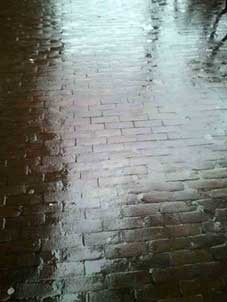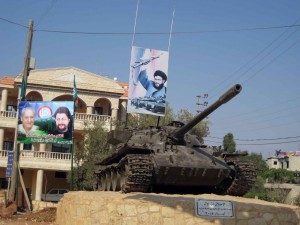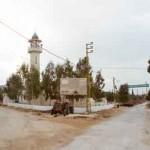From The Web – The Innocence Network
 The Innocence Network is an affiliation of organizations dedicated to providing pro bono legal and investigative services to individuals seeking to prove innocence of crimes for which they have been convicted and working to redress the causes of wrongful convictions.
The Innocence Network is an affiliation of organizations dedicated to providing pro bono legal and investigative services to individuals seeking to prove innocence of crimes for which they have been convicted and working to redress the causes of wrongful convictions.
We invite you to use this site to learn more about our members and exciting news, our annual conference and our membership guidelines and as a resource for past amicus briefs on post-conviction innocence claims. If you are interested in having the Network submit an amicus brief in a case, please fill out this request form.
You can also see who is on the Network Board, learn about the history of the Network, and contact the Network Support Unit.
In 2012, the work of Innocence Network member organizations led to the exoneration of 22 people imprisoned for crimes they did not commit
Read more: http://www.innocencenetwork.org
Hezbollah: From Nasser To Nasrallah ~ A Historical Context
“National liberation, national reawakening, restoration of the nation to the people or Commonwealth, whatever the name used, whatever the latest expression, decolonization is always a violent event.” – Frantz Fanon, The Wretched of the Earth, 1.
In order to understand Hezbollah’s political and social project it is crucial to start by placing the movement within the wider context of Middle Eastern conflicts. The Palestinian cause and the failure of the Arab nationalist experience of Gamal Abdel Nasser in the 1950’s and 1960’s in addition to the colonial experience which determined the region’s maps, borders and current political identities are all necessary components of Hezbollah’s political discourse. To this day, Palestine remains central in Arab political concerns and being Arab remains a political and ideological position that is in constant flux.
I will argue that the emergence of Hezbollah and subsequently their political discourse must be understood in relation to three main issues of contemporary Arab history:
a. the post-colonial liberation struggle for the establishment of independent political entities and identities (with Gamal Abdel Nasser’s Arab Nationalist experience as its most salient example);
b. the resurgence of Islam as a political force after the failure of secular Arab nationalism;
c. and the specifically Shiite political experience from the Iranian Revolution to the emergence of Hezbollah out of the Lebanese Shiite condition.
In this essay, written in 2012, I will present the context for the emergence and development of Hezbollah’s political discourse. The preceding three conditions will be investigated in order to better understand the discourse and identity that this Islamic movement is promoting in Lebanon and the Arab world. After exposing the context of emergence and decline of Arab nationalism, the rise of political Islam as a response, and the specific experience of Shiite political movements in Lebanon, I will show how Hezbollah’s political discourse transformed from an uncompromising Shiite militia in the 1980’s to a Lebanese political party and resistance movement in the 1990’s and with the liberation in 2000, to a regional force after the 2006 war.
Looking at the political landscape in the Middle East today, one can notice that the same political divisions of the early post-colonial time remain at the heart of current conflicts between the pro-Western “moderate Arab states” and the anti-Western “axis of refusal”. In fact, since the end of European direct colonial rule over the Arab world, two opposing camps emerged that were to mirror the global division of the Cold War between a revolutionary socialist pro-Soviet camp and a reactionary pro-Western one (Kepel 2006, 46). The first group adopted a revolutionary rhetoric refusing western influence and preaching armed resistance against the Israeli occupation of Arab lands and a refusal of the Western post-colonial influence. This group led by Nasser’s Egypt in the 1950’s and 1960’s was mobilizing the Arab masses with a discourse of Arab nationalism and socialist reforms. On the other side, were the monarchical regimes of the Gulf, Jordan, pre-revolutionary Iraq and Tunisia. This pro-Western camp was concerned in preserving the status quo and curtailing the advancement of Arab nationalism and socialism into their societies. Read more
Niet leerlingen, maar volwassenen moeten pesten indammen
 Pesten staat volop in de belangstelling sinds het dit schooljaar (2013) bij enkele tieners mogelijk (mede) tot zelfdoding heeft geleid. Uit onderzoek blijkt dat pesten in 2012 intensiever is geworden: het aantal pesters neemt af maar zij maken meer slachtoffers. Staatssecretaris Dekker wil dat scholen pestgedrag terugdringen met een bewezen effectieve aanpak. Maar welke dan?
Pesten staat volop in de belangstelling sinds het dit schooljaar (2013) bij enkele tieners mogelijk (mede) tot zelfdoding heeft geleid. Uit onderzoek blijkt dat pesten in 2012 intensiever is geworden: het aantal pesters neemt af maar zij maken meer slachtoffers. Staatssecretaris Dekker wil dat scholen pestgedrag terugdringen met een bewezen effectieve aanpak. Maar welke dan?
Als we de pestprogramma’s op de website van het Nederlands Jeugd Instituut (http://www.nji.nl) bestuderen, zien we hoeveel tijd en geld op scholen worden verspild aan benaderingen die niet bewezen effectief zijn.
Meestal stopt het pesten slechts gedeeltelijk of tijdelijk. De nieuwste trend is een training aan hele klassen, waarbij leerlingen leren om elkaar aan te spreken op pestgedrag. Maar ook daarvan mogen wij niet te veel verwachten, want het pesten gaat daarna in 60% van de gevallen gewoon door.
Dat laatste is niet verbazingwekkend. Uit schriftelijke leerling-enquêtes in het Voortgezet Onderwijs over de omgangssfeer in de klas blijkt dat meerdere klasgenoten bij onprettig gedrag daar regelmatig iets van zeggen. Echter, bij de vraag of dat helpt, schrijven zij vrijwel allemaal: ‘Nee, even later gebeurt het weer.’ Of: ‘Nee, want dan krijg ik zelf een snauwerige opmerking terug.’
De prikkel die uitgaat van corrigerende opmerkingen van klasgenoten is voor veel pesters te zwak. Pesten is een vorm van groepsvermaak; iets doen waar je samen over kunt lachen fungeert als een krachtig bindmiddel in de eigen vriendenkring en levert een gevoel van superioriteit op. Die ‘winst’ laten de lolbroeken zich niet zomaar ontfutselen. Ook niet door klasgenoten. Read more
- Page 4 of 4
- previous page
- 1
- 2
- 3
- 4




